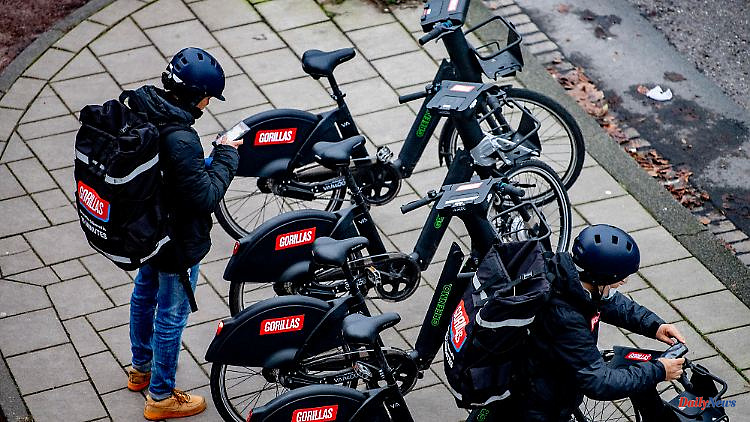What was intended as creative fun is not well received by employee representatives: In a new campaign, the lightning delivery service Gorillas advertises its own employees' concerns about inflation and tries to persuade customers to make compassionate purchases.
The subject of an email that the Berlin delivery service Gorillas sent to thousands of customers this week sounded like a cry for help: "I urgently need a promotion. The inflation is crazy. I need a raise," says the text preview. The letter introduces a certain Adri, apparently an employee from the marketing team, who wants to impress his boss with a particularly effective voucher campaign. For this he needs the help of the customers. You should redeem a discount code. Finally, the employee turns to her directly again: "Don't let me down," he writes.
In the e-commerce industry, discount campaigns are a common way to attract new customers or reactivate old ones. Companies want to boost their sales in the short term, for example to spruce up the figures at the end of the quarter or to shine in presentations for investors. This makes gorillas particularly aggressive compared to the competition. The startup has been advertising with similar email campaigns for months, sometimes several times a week. However, the fact that it is apparently using the precarious financial situation of its own employees as a scam is new.
A Gorillas spokeswoman confirmed the authenticity of the mail. They wanted to tie in with an internet phenomenon. Some videos are circulating on the social media platform Tiktok under the keyword “My boss says”, in which young people apparently jokingly beg for likes and clicks so that they can get a reward from their boss. "As a young and courageous company, we give our employees the freedom to develop creative ideas and implement them," said the spokeswoman for the campaign.
The start-up's communication is met with incomprehension by employee representatives. "Unfortunately, precarious working conditions, incorrect accounting, poor pay and equipment are the order of the day for gorillas. To exploit the needs of the employees for one's own marketing is perfidious and unparalleled," says Conny Weißbach from the Verdi union, which is based in Germany Berlin-Brandenburg district heads the trade department. Instead of relying on the sympathy of the customers, the company should rather do something for the employees itself, demands Weißbach. For example, by supporting the upcoming works council elections. Gorillas said it pays all employees "fairly and competitively."
The campaign also failed from a communication point of view, says Sachar Klein, head of the Berlin PR agency Hypr. "With its communication, Gorillas substantiates all the prejudices that one has as an uninvolved third party when one reads the news: The company is fine with anything to make sales - including the precarious situation of its employees," says Klein.
Gorillas is currently under enormous economic pressure. The delivery service has a high cash burn but is not yet profitable. According to industry insiders, the startup has been trying to find new investors for months. Talks about a sale are said to have already taken place. As recently as May, Gorillas fired around 300 employees from the headquarters.
The overall economic situation is also increasing the cost pressure. On the one hand, food retailers are currently struggling with high price jumps in purchasing. According to the Federal Statistical Office, food inflation rose by around 19 percent in September compared to the previous year. Second, energy prices are driving up the operating costs of the mini-logistics centers that Gorillas maintains in each of its delivery areas.
This article first appeared on Capital.de.












